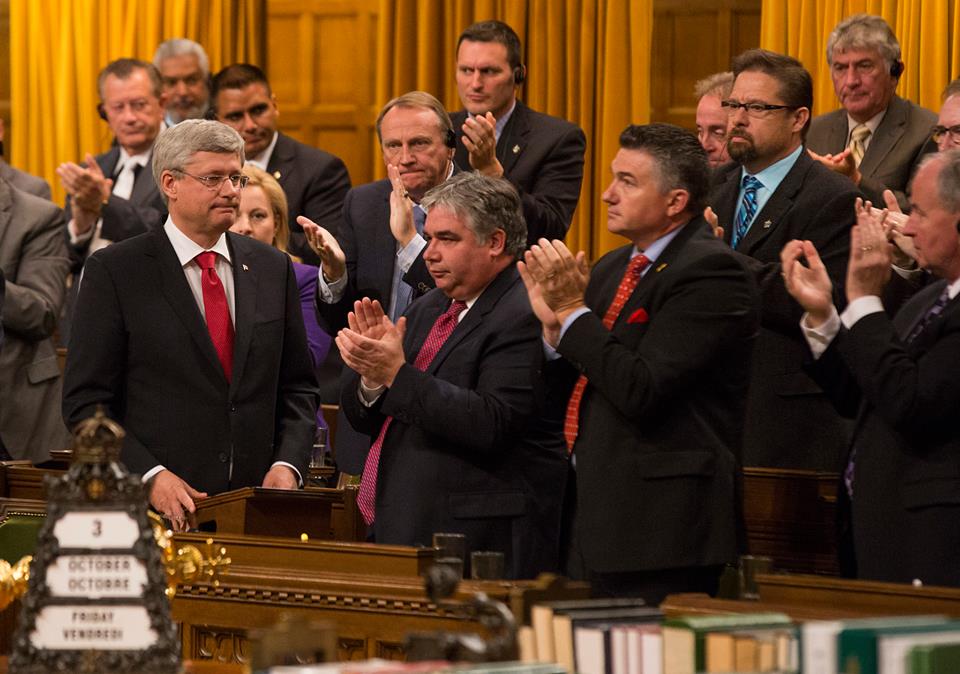
Montréal, Quebec — Prime Minister Stephen Harper today announced the intention to provide long-term support for the Royal Canadian Mounted Police (RCMP) and the Canada Border Services Agency (CBSA) to help counter terrorist threats, including from high-risk travellers. He was joined by Denis Lebel, Minister of Infrastructure, Communities and Intergovernmental Affairs and Minister of the Economic Development Agency of Canada for the Regions of Quebec, and Steven Blaney, Minister of Public Safety and Emergency Preparedness.
Canada is not immune to the threat of terrorism, as made tragically clear by the brutal attacks of last October in Saint-Jean-sur-Richelieu, Quebec, and Ottawa. Economic Action Plan (EAP) 2015 proposes to provide intelligence and law enforcement agencies with additional investigative resources to help them keep pace with the evolving threat of terrorism and continue protecting Canadians.
For the RCMP, the new resources would support the organization’s capacity to conduct criminal investigations related to terrorism. This includes bolstering front-line policing through the five RCMP-led Integrated National Security Enforcement Teams, which investigate high-risk travellers and other national security threats.
For the CBSA, additional resources would enhance the Agency’s capacity to identify high-risk travellers and support the Agency’s participation in the RCMP-led National Security Joint Operations Centre, a group that examines individual cases of extremist travellers to tailor the most, timely, effective and accountable response.
The measures announced today will require parliamentary approval.
Quick Facts
– As part of EAP 2015, the Government is investing significant support in intelligence and law enforcement agencies for additional investigative resources to counter terrorism.
Through measures included in EAP 2015, including the Prevention of Terrorist Travel Act and amendments to the Canadian Passport Order, the Government has taken measures to strengthen Canada’s ability to cancel, refuse or revoke passports as a preventative measure against high-risk travellers.
– On April 23, 2015, the Protection of Canada from Terrorists Act received Royal Assent. This legislation contains targeted amendments to the Canadian Security Intelligence Service Act to ensure our intelligence agency has the tools it needs to investigate threats to the security of Canada and ensure our collective safety and security.
– In 2015, the Government introduced Anti-terrorism Act, 2015 to ensure that Canadian law enforcement and national security agencies can effectively investigate and counter those who advocate terrorism and take part in terrorist activities, prevent terrorist travel by air and the efforts of those who seek to use Canada as a recruiting ground, and disrupt planned attacks on Canadian soil.
– Canada’s current military contribution against ISIS, known as Operation IMPACT, was recently extended for up to 12 months, until March 30, 2016, and expanded to include airstrikes against ISIS targets in Syria.
– In 2014, the Citizenship Act was amended to enable the government to revoke Canadian citizenship from dual citizens and deny it to permanent residents who are convicted of terrorism, high treason, treason or spying offences, depending on the sentence. In 2013, theCombating Terrorism Act made it a criminal offence to leave or attempt to leave Canada for the purposes of participating in or facilitating terrorist activity.
– In 2012, the Government of Canada released Canada’s Counter-terrorism Strategy, which guides more than 20 federal organizations to prevent, detect, deny and respond to the threat of terrorism.
Quote
“Our Government understands that violent jihadism is not a future possibility. It is a present reality in Canada and around the world, and we know that we must be ready to face this threat right now. That is why our Government will continue to do everything it takes to protect Canadians and help defeat those who attack our values. Today’s announcement helps ensure that those brave men and women on the front lines of the battle against violent extremism and terrorism have the resources they need to protect us.”
– Prime Minister Stephen Harper